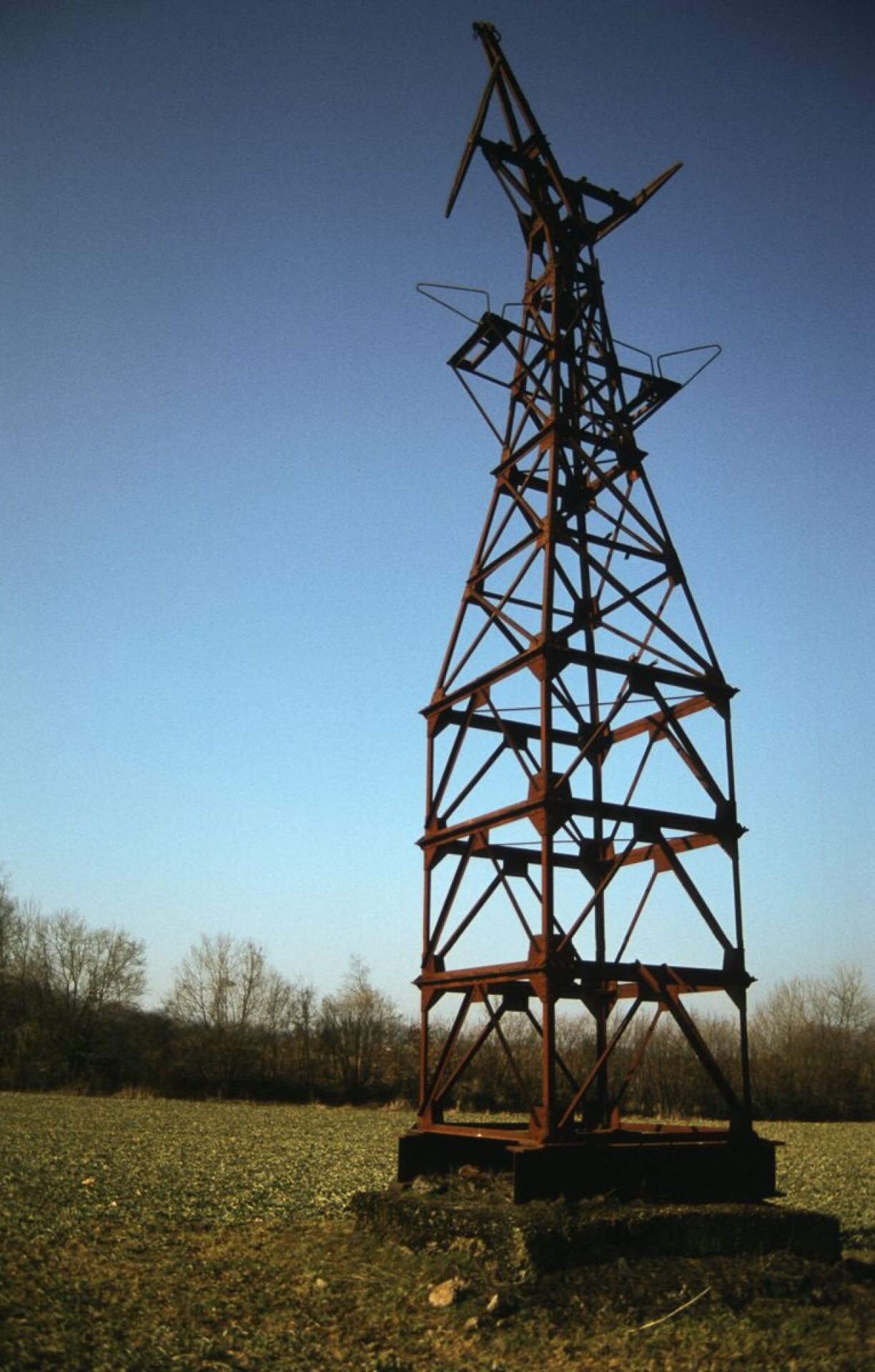
A farmer in Rumelange has drawn criticism from local residents and officials after demolishing a historic pylon on his property without permission.
The incident came to light after a local resident, Alain Zimmermann, witnessed the demolition during his daily walk on Friday, 3 October. Zimmermann stated that he saw the farmer using a tractor to tear down the structure, which had been a familiar part of the landscape since his childhood.

According to his account, the farmer split the pylon in two and moved the pieces to the edge of the woods, concealing them from view.
The Rumelange local council confirmed that the farmer did not obtain a permit for the demolition. Mayor Henri Haine expressed his regret, stating, “It’s extremely regrettable, after all, it’s part of our industrial heritage.” The mayor criticised the farmer’s actions, noting that he could have at least sought a discussion with the council beforehand, adding, “we don’t know why the pylon suddenly became a nuisance.”
The demolished structure was one of several pylons erected in 1906 by the Cologne-based company Pohlig. These pylons supported a 12.7-kilometre cableway that ran from the French town of Ottange to Differdange and Belval, operating until 1980. The infrastructure was used to transported ore from mines, making it a crucial component of Luxembourg’s industrial past.
For many in the region, these pylons are symbolic remnants of that heritage. As Zimmermann explained, they are a tangible link to the steel industry’s history, and their destruction has sparked frustration among residents proud of their local legacy.
In response to the incident, the Rumelange local council has announced its intention to formally protect the remaining historic pylons to prevent further unauthorised demolitions.
A number of these structures still stand in the region, including in Esch-sur-Alzette and the woods near Rumelange. Two well-preserved examples are located on the grounds of the National Mining Museum in Rumelange, one of which still has a gondola car attached.
Mayor Haine stated that the council is pursuing protection for the pylons at a local level. He also indicated that the municipality is attempting to contact the farmer involved to “see if anything can be salvaged from the remains.”
While the demolished pylon was not a listed heritage structure, meaning the farmer faces no direct penalty for its destruction, the council is investigating potential legal repercussions for carrying out the demolition without a required permit.
Attempts to contact the landowner for comment during the investigation conducted by RTL were unsuccessful.